Trip to Warsaw
I recently took a one-week trip to Warsaw. Due to reasons I had to book it very short notice so I didn’t end up going to any events. Instead I spent my time there wandering through the streets and talking to some people.
There is a saying in Poland: “Polska to jest dziwny kraj,” which means “Poland is weird.” I found it so. I tried to be as loyal to the tone and language of the signs depicted below as I could, but translation is hard.
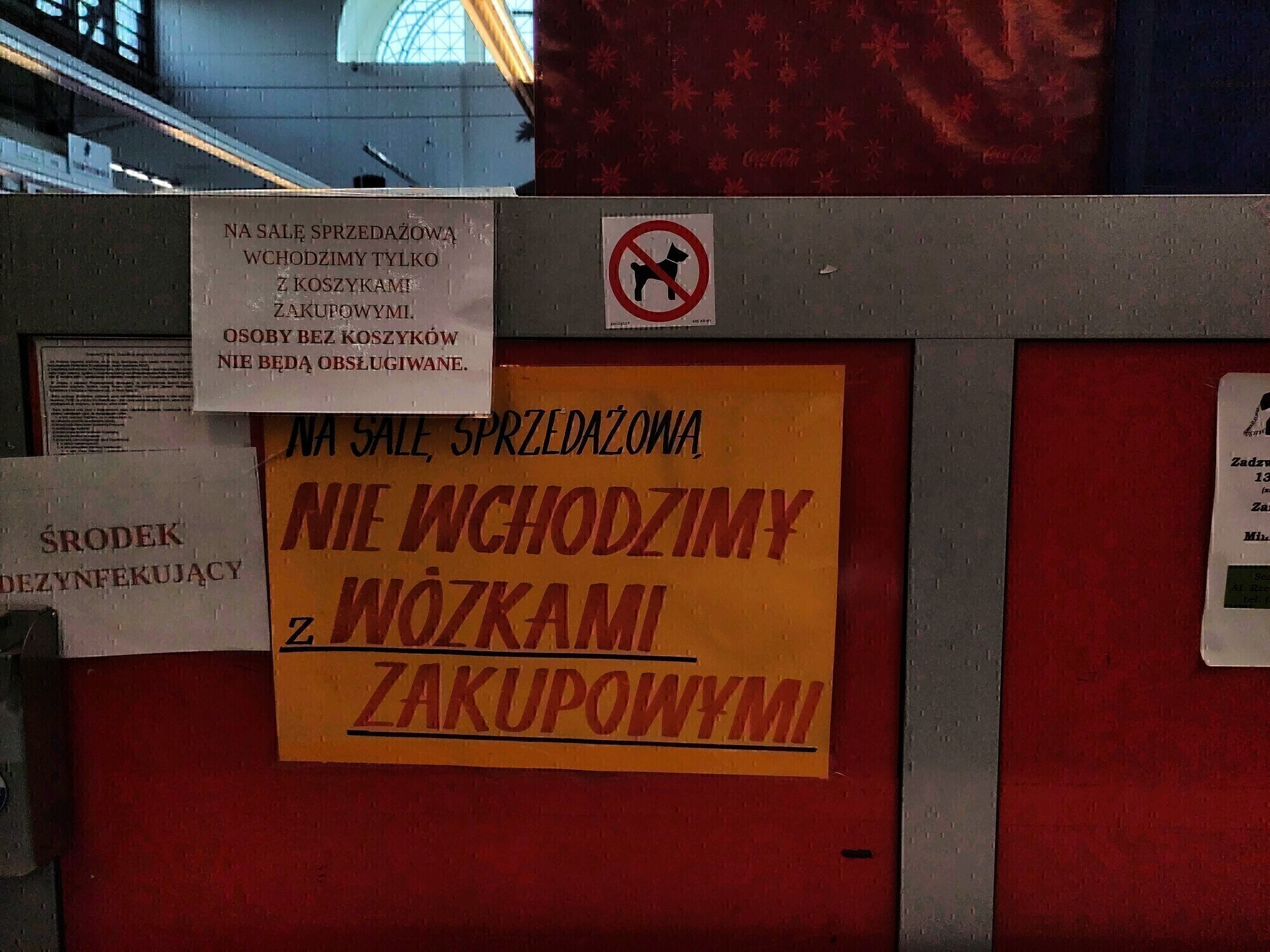 (By the entrance to a supermarket) Top left: We only enter the supermarket with a shopping basket. People without baskets will not be served. Center: One does not enter the supermarket with a shopping trolly. (Of course, both baskets and trollies were available at the entrance, to trick the unweary).
(By the entrance to a supermarket) Top left: We only enter the supermarket with a shopping basket. People without baskets will not be served. Center: One does not enter the supermarket with a shopping trolly. (Of course, both baskets and trollies were available at the entrance, to trick the unweary).
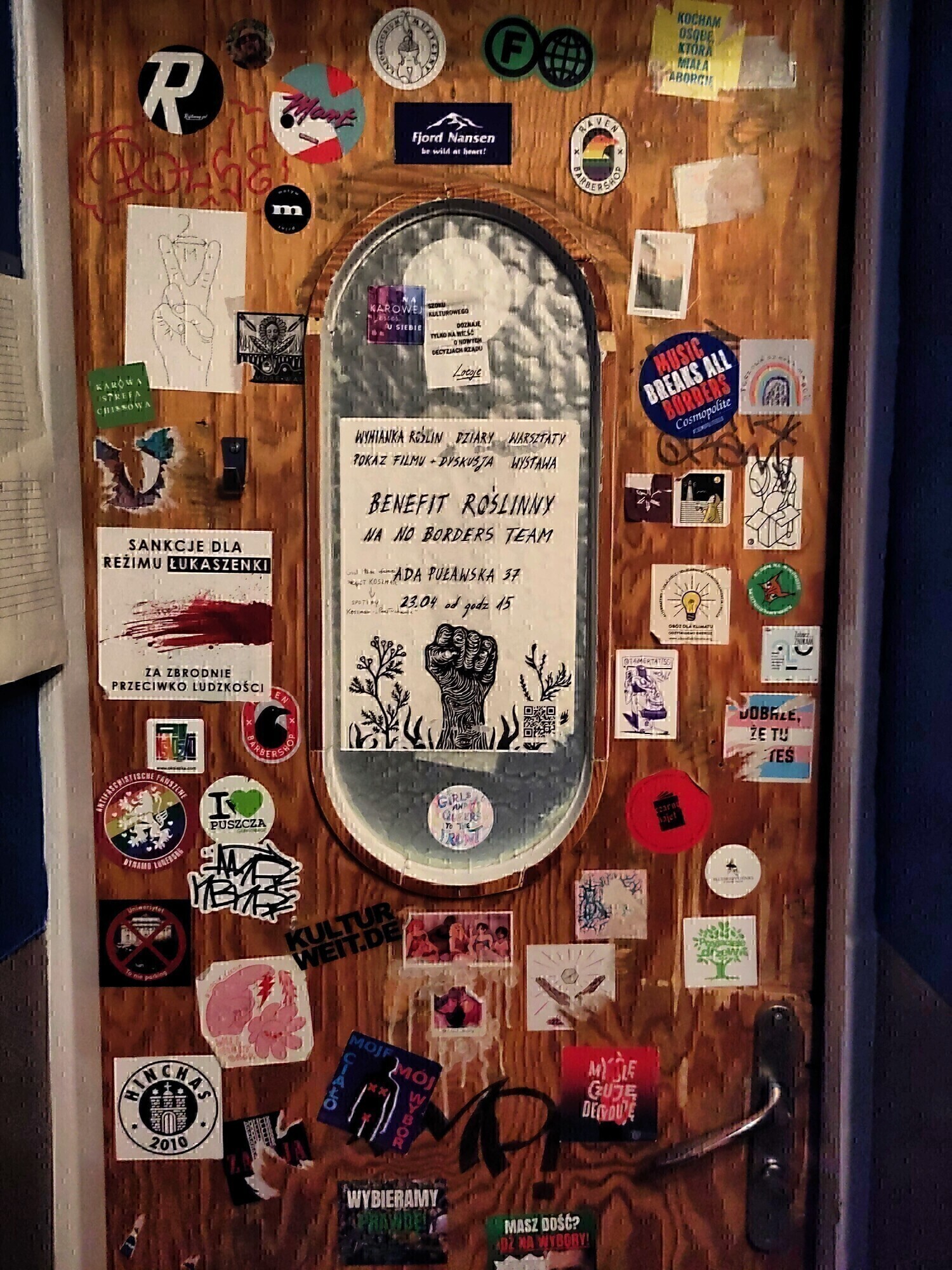 (On a bathroom door) Earthlings love it when the light is on, they have tamed the night a long time ago. Each lamp that is turned on is a small piece of coal, burning somewhere in a power plant and warming the climate. Poland is running out of coal, we have to import it from the east. Turn the light off when you don’t need it.
(On a bathroom door) Earthlings love it when the light is on, they have tamed the night a long time ago. Each lamp that is turned on is a small piece of coal, burning somewhere in a power plant and warming the climate. Poland is running out of coal, we have to import it from the east. Turn the light off when you don’t need it.
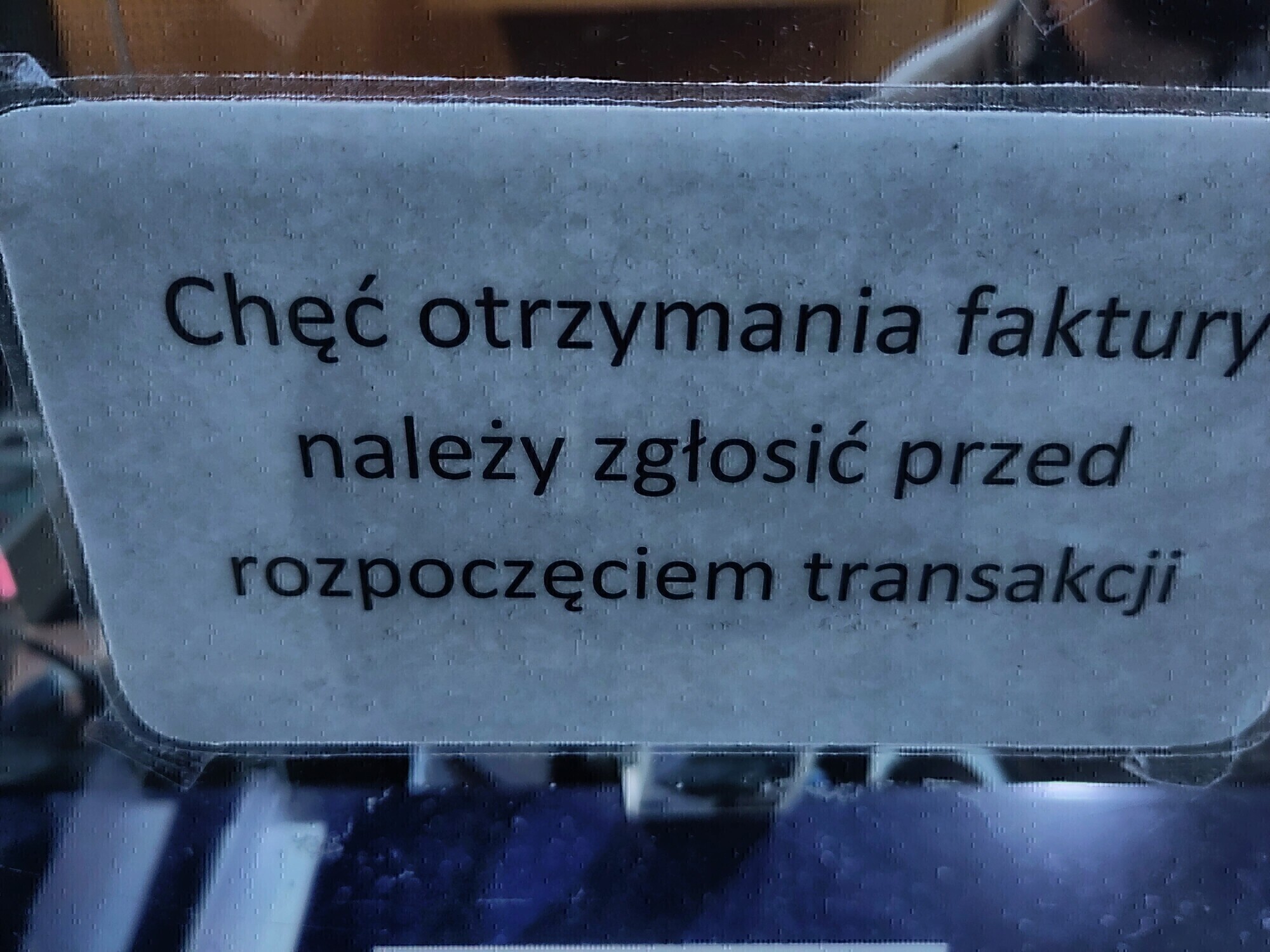 The desire to receive a receipt is to be voiced before beginning the transaction.
The desire to receive a receipt is to be voiced before beginning the transaction.
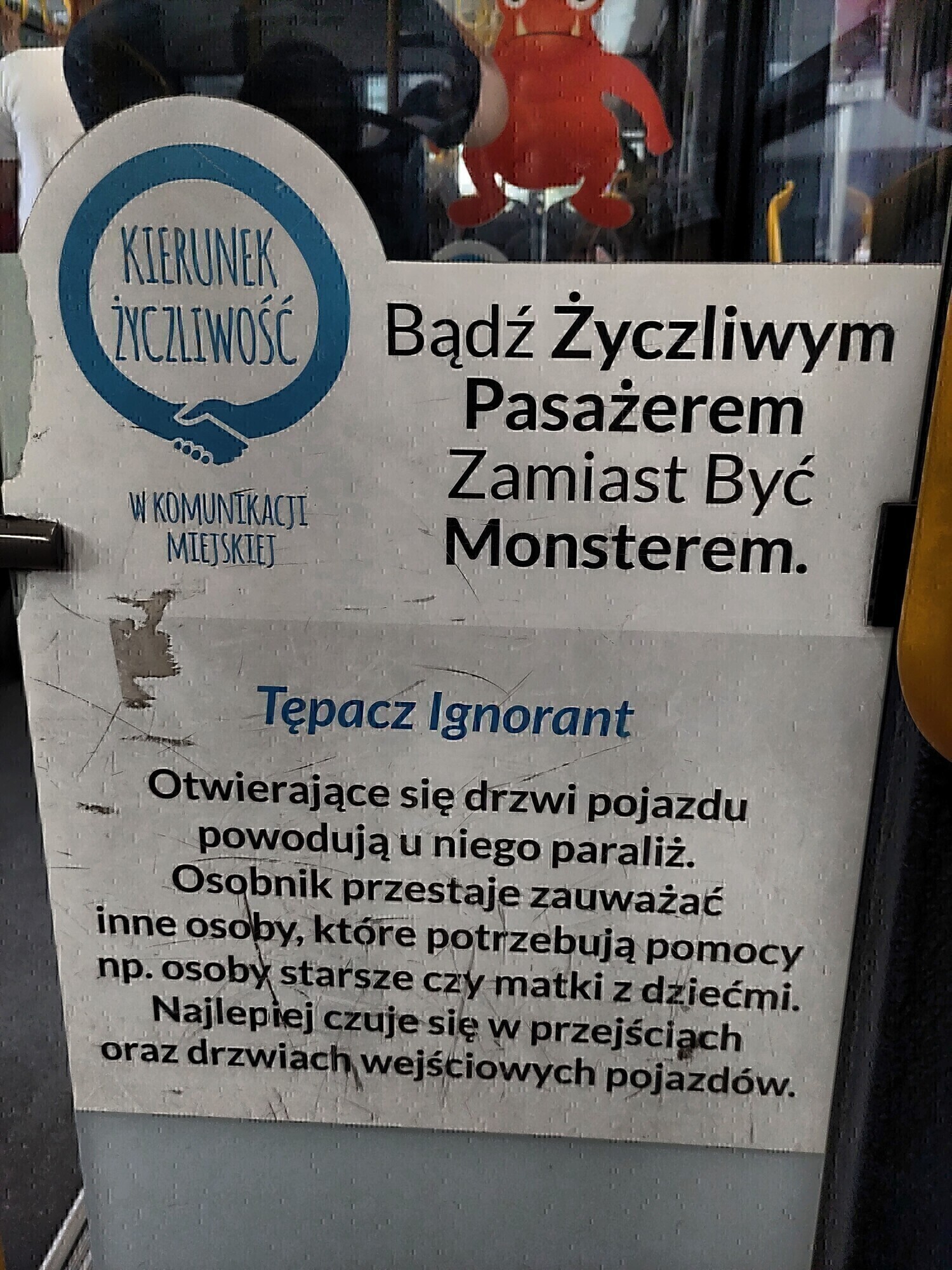 Top left: Direction: Kindness, in public transport. Top right: Be a kind passenger instead of being a monster [it rhymes in the original]. Bottom: The obtuse ignorant. Opening vehicle doors cause paralysis in him. The individual ceases to notice other people who need help, for example older people or mothers with children. It thrives in corridors and doors of the vehicle.
Top left: Direction: Kindness, in public transport. Top right: Be a kind passenger instead of being a monster [it rhymes in the original]. Bottom: The obtuse ignorant. Opening vehicle doors cause paralysis in him. The individual ceases to notice other people who need help, for example older people or mothers with children. It thrives in corridors and doors of the vehicle.
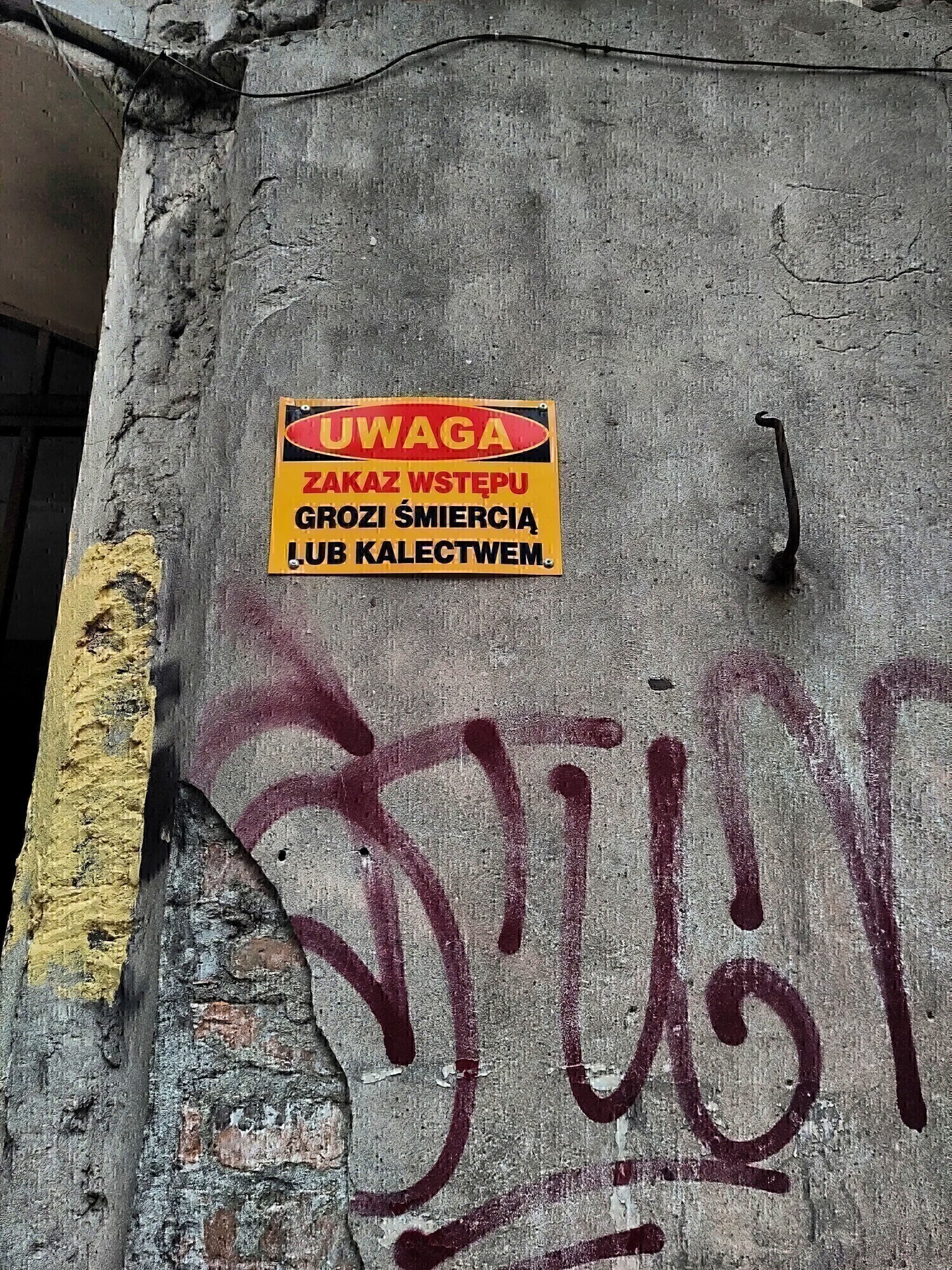 Warning! No entry. Risk of death or crippling [!]. (Hard to translate but it sounds really offensive.
Warning! No entry. Risk of death or crippling [!]. (Hard to translate but it sounds really offensive.
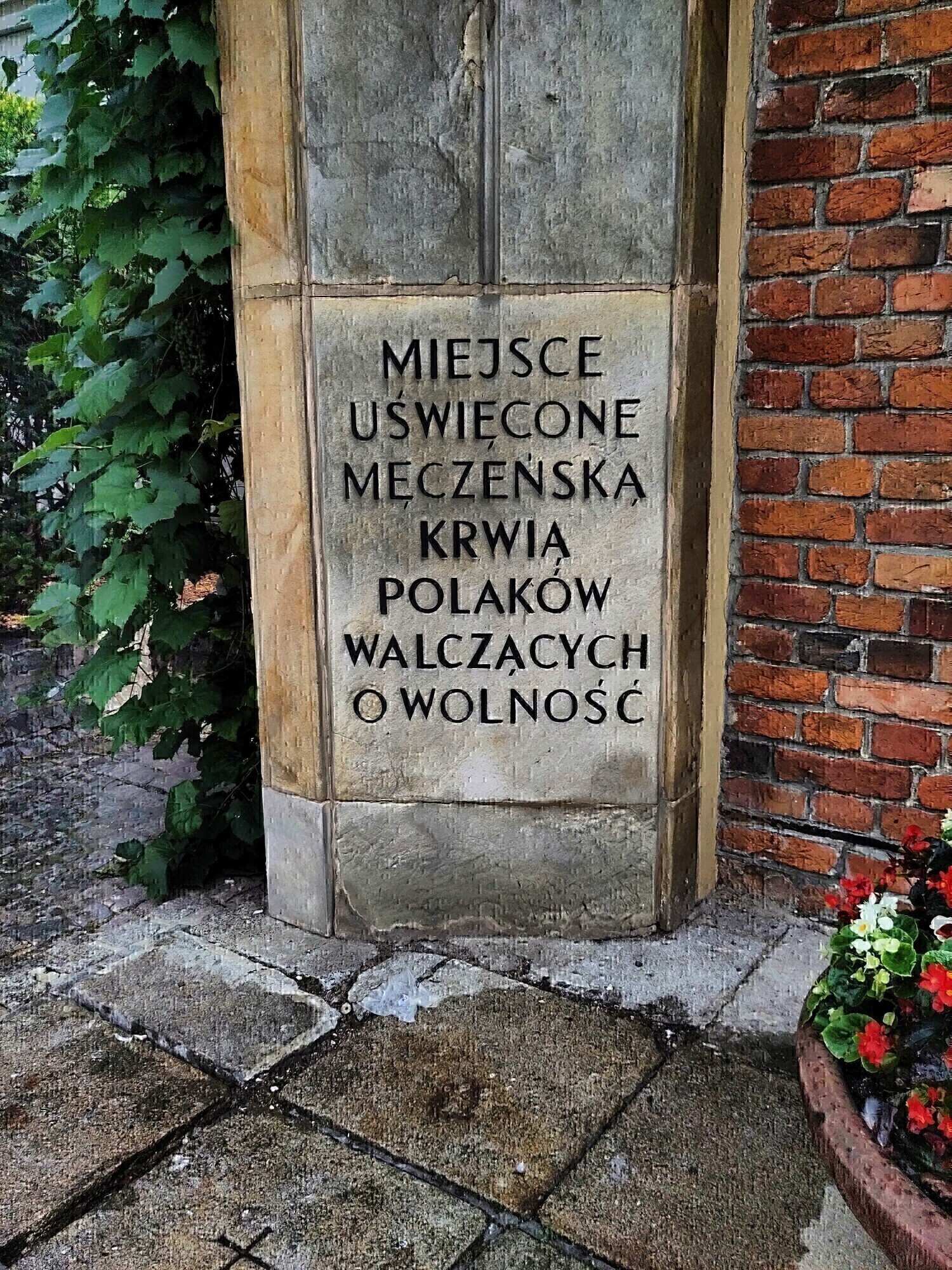 This place is hallowed by the martyric blood of Poles who fought for independence.
This place is hallowed by the martyric blood of Poles who fought for independence.
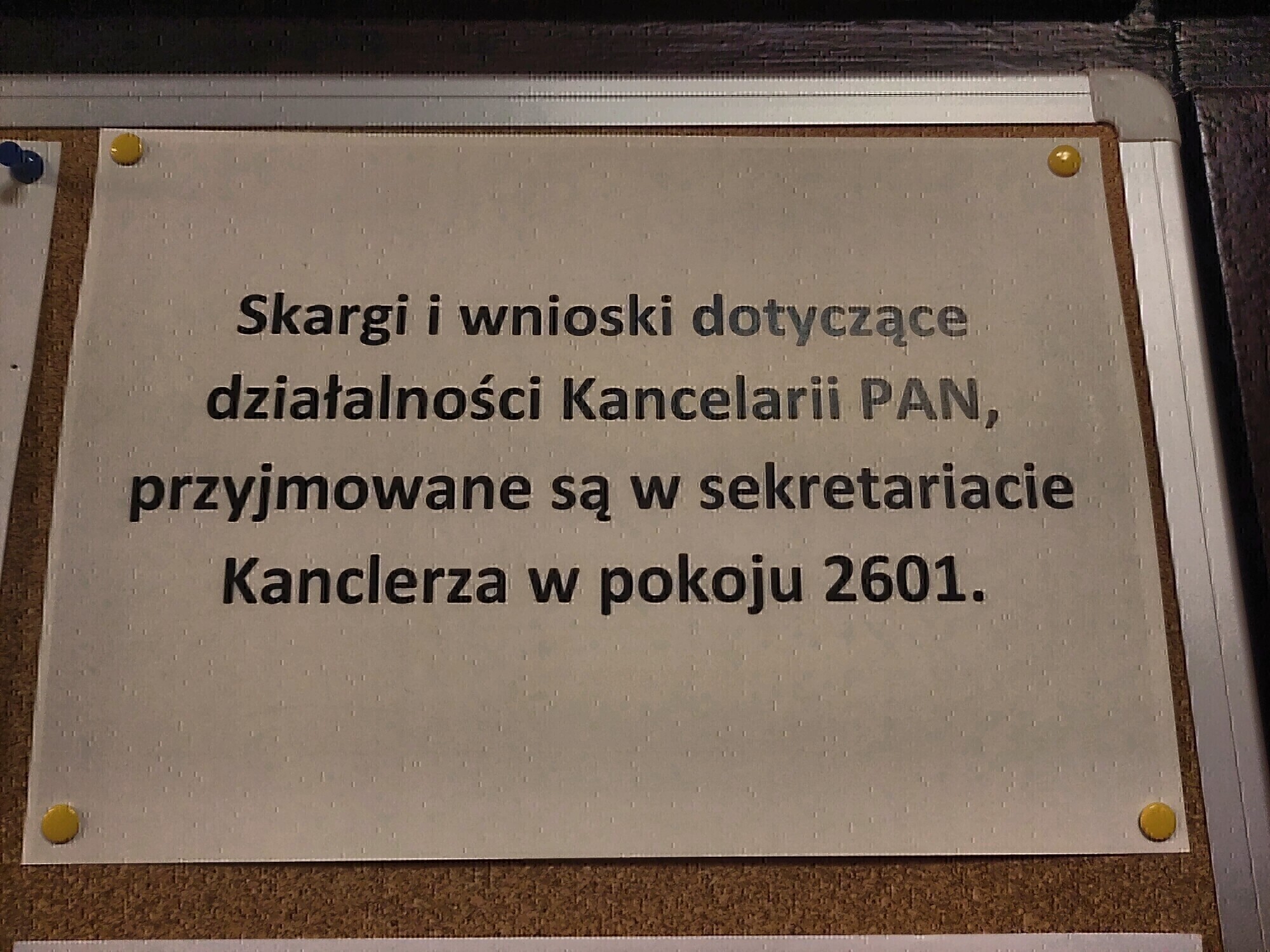 Complaints and filings concerning [the law firm] PAN will be received in the secretariate by the Chancellor in room 2601.
Complaints and filings concerning [the law firm] PAN will be received in the secretariate by the Chancellor in room 2601.
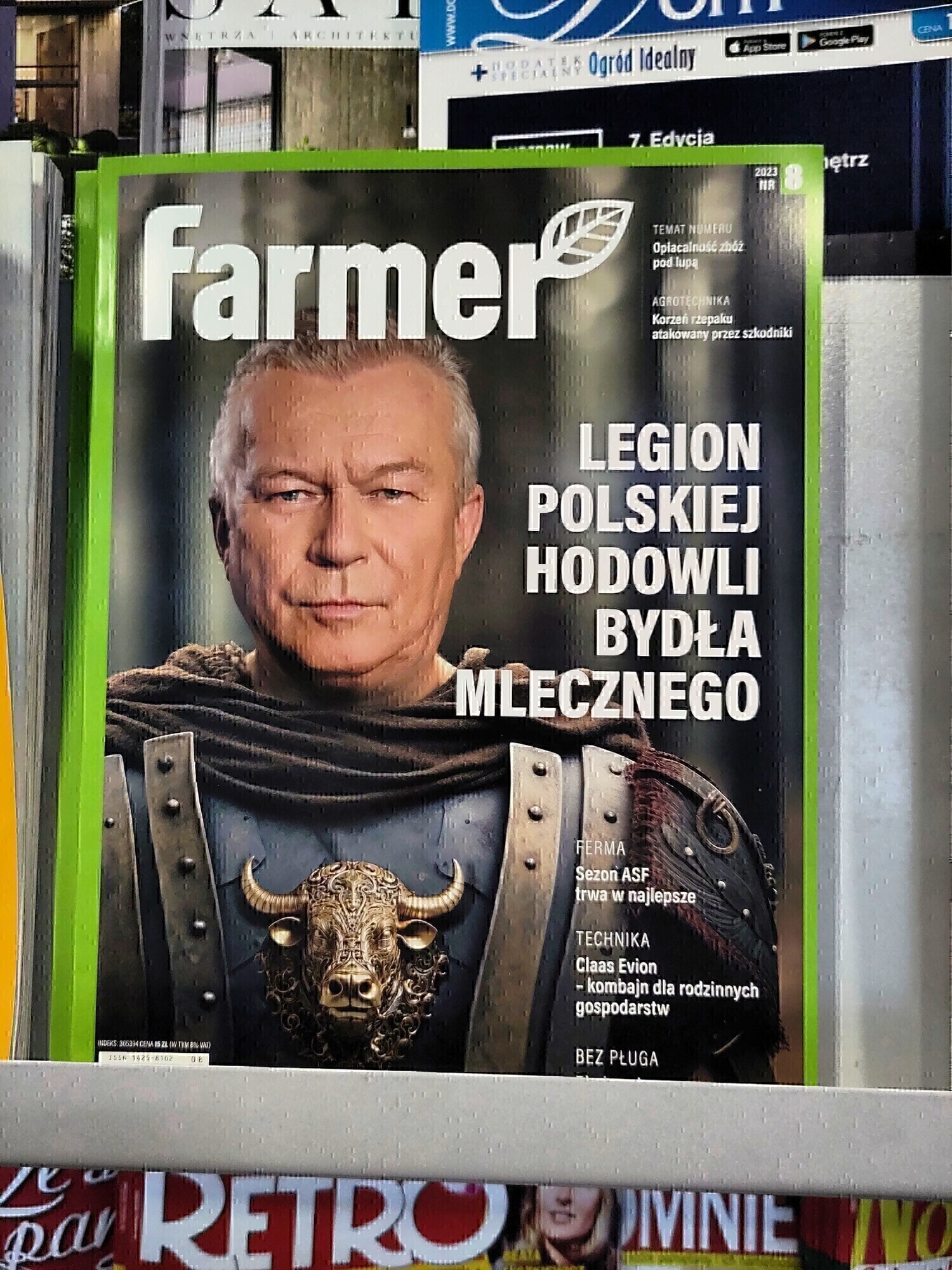 The legion of the Polish dairy industry.
The legion of the Polish dairy industry.
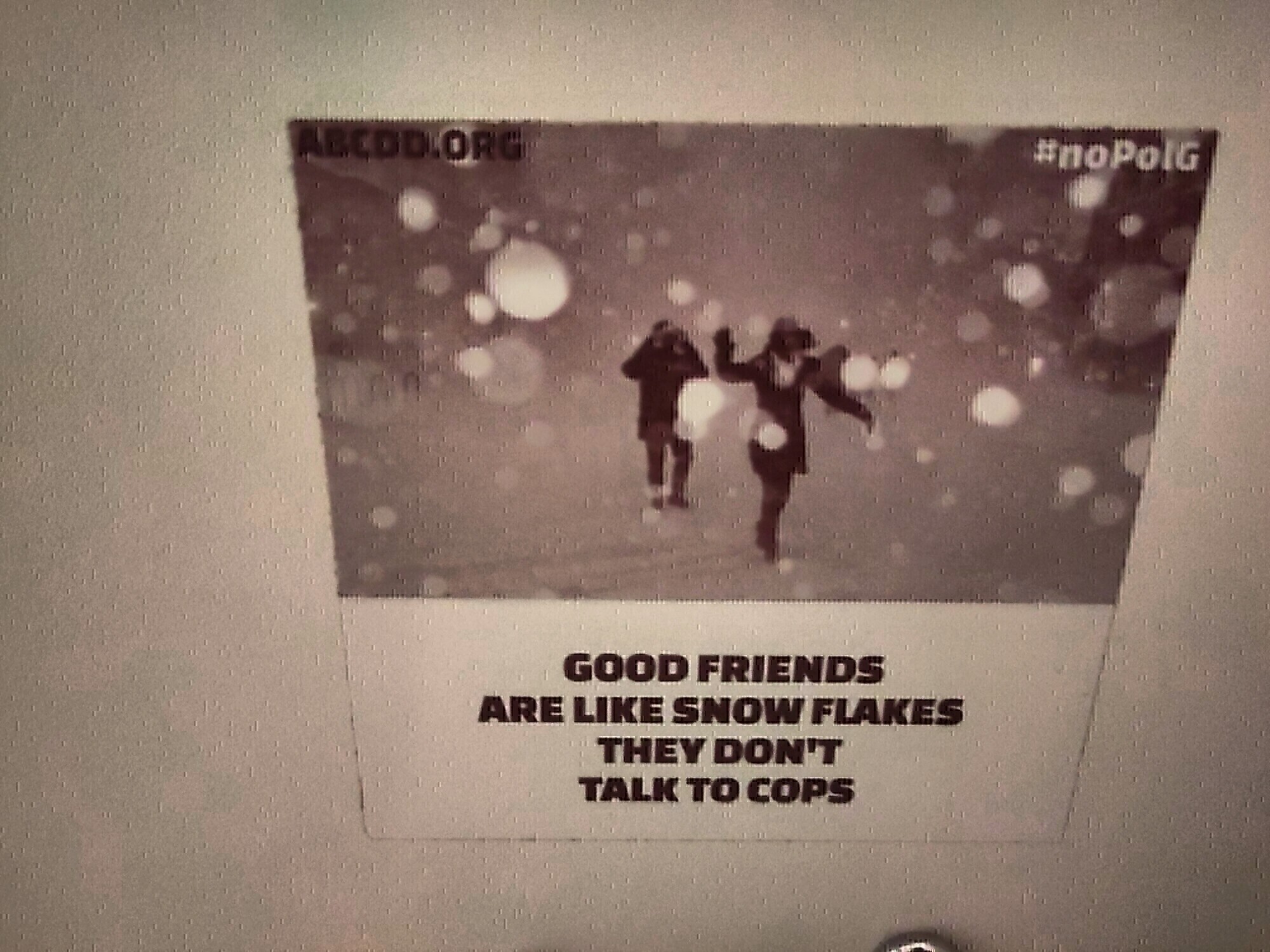
The most surprising thing about Warsaw was that it just feels like a vibrant modern city. The typical Polish absurdity I showed above was very sparse. Reliable, spacious, quiet public transport, tons of cafes and restaurants, and clean and modern buildings more than made up for it.
Treatment of queer people was better than I expected, although Warsaw is of course very different from the rest of Poland. What I got from locals is that people will leave you alone as long as you don’t hold hands in public1. Otherwise people will comment on it but you “probably” don’t have to worry about violence. I said better than expected, not good. And I don’t know anything about legal status and protections. I saw a few goths and alternative-looking people, as well as a bunch of gay and lesbian couples.
I didn’t see any Soviet remnants with the exception of the Pałac Kultury i Nauki (Palace of Culture and Science), also affectionatley (?) called Pałac Stalina (Stalin’s Palace) or Rakieta (the Rocket). The most striking thing about it is that it is almost completely empty, since people don’t really know what to do with it. And most of it is open to the public, too, although I felt like someone might just have forgotten to lock some doors. The graffiti and trash that you would expect from a deserted building were absent, and some parts of it house a theatre and offices, so there are a lot of people moving through limited sections of it. But most of it is spooky and empty.
There are a lot of people from Ukraine around Warsaw, lots of signage in Ukrainian, and some book shops even have sections with books in Ukrainian. There are also many people from Belarus who fled after the protests began.
-
To be clear, my expectations were very low; better than expected doesn’t mean good. ↩